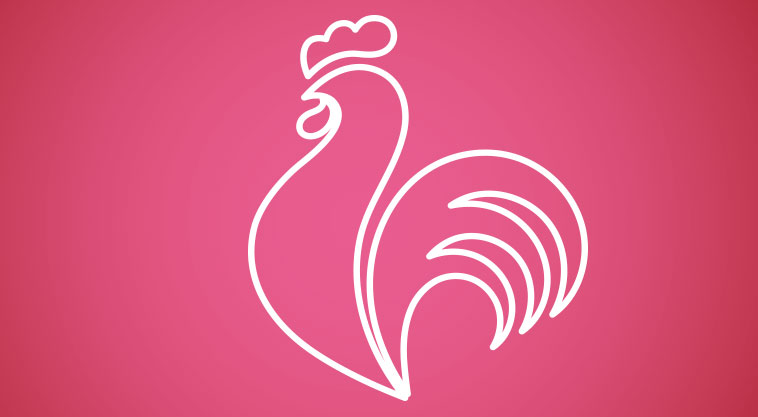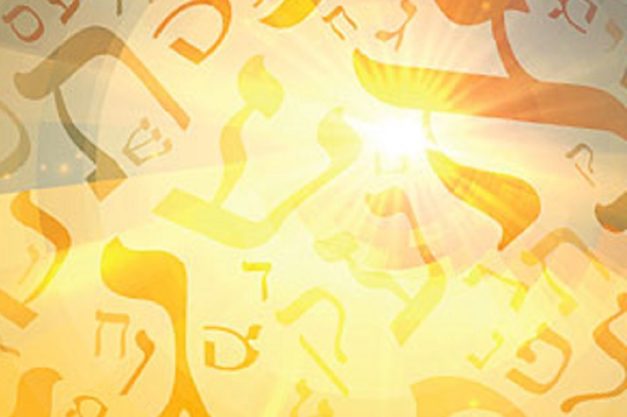Lifted Above the Nations


S ummer’s over and with the kids safely back in school we can look back and think of our highlight vacation moments. But what if we were asked to choose a spiritual highlight of our year? What would that look like?
We might think of Kol Nidrei or the first night of Succos gathered around the table to hear Yom Tov Kiddush. We might remember a hospital visit that made that difference or maybe we helped launch a crowdfunding campaign to help a family get back on their feet.
Undoubtedly there are highlight moments of all kinds. Yet every day we can all have a highlight moment a few seconds in which our life’s mission and task is condensed into a few potent words words that can inject us with such intense joy that the pressures of life dim in comparison.
Baruch Atah Hashem… shelo asani goy — Blessed are You Hashem who has not made me a gentile.
Several questions can be asked regarding this brachah.
Why do we say this every single day? Would it not be sufficient to make this brachah only on the day we enter the obligation to accept mitzvos? Further why is the brachah formulated in the negative; would it not make more sense to thank Hashem that we were created as Jews?
In the Driver’s Seat
At the start of each day before we embark on the many tasks that life throws at us we’re reminded of our qualitative difference from the rest of humanity: We are not like the rest of the world. The first brachah of birchos hashachar reminds us of our ability to make distinctions. In Lefanav Naavod Rav Ephraim Fordsham states that we then immediately thank Hashem for the most important difference in our lives: We are not like the rest of the world.
This distinction is fundamental to our identity. Hashem views the nations in a collective sense; Jews are treated as individuals. When saying this brachah we remind ourselves that Hashem has a personal interest in me as an individual. Further He has expectations of me and has chosen me to be a medium of creating G-dliness in the world at every moment. Our actions go way beyond our living room or kitchen.
It’s easy to slip into spiritual lethargy. But when we remember that we’re in the driver’s seat here — we’re the ones who steer the world to its ultimate destination — then we realize that alertness is key. So is navigating our course which might require spiritual adjustments and reconfigured routes along the way. This concept needs reinforcement each day not just once in a lifetime and so we say the brachah every single morning.
Of course the knowledge that our lives stand at the apex of creation and that our actions have cosmic significance is a huge responsibility — one that pushes us to seek Hashem’s involvement in every aspect of our lives. This consciousness can fuel us; when projects become daunting when child-rearing seems impossible we need to take a deep breath and think about this brachah.
The First Command
This brachah was first recited by Moshe Rabbeinu when he heard the first of the Aseres Hadibros (Talelei Oros quoting Midrash Abkir). Although the Avos kept the Torah Matan Torah was a transitional moment in which we became obligated to observe the Torah and were separated from the rest of the world. Orchos Chayim notes that the formulation of the brachah contains nine words paralleling the nine words in the first of the Aseres Hadibros. The first dibrah notes the Rosh in Orchos Chayim (26) reflects the greatness of being Jewish.
Fundamental to our belief is the existence of Hashem coupled with the second part of the pasuk: “Who took you out of Egypt from the house of slavery.” Unique to being Jewish is the personal relationship each of us has with Hashem. This dibrah is written in the singular form Elokecha not the plural to underscore this special connection. Likewise notes Laboker Rinah this brachah is written in the singular asani. This brachah is a daily reminder that we have the special capacity to call out to Hashem whenever we need and He is close to each one of us to respond to our challenges.
Yesod V’shoresh Ha’avodah notes that this brachah should infuse us with tremendous joy. We don’t need to look far to see the chaos and moral anarchy that plagues the secular world. Shifting values and a breakdown in family and community mean that despite being safer and more affluent than ever in history people are less happy. Surveys suggest that at least one million people in the US each year engage in intentionally inflicted self-harm.
On the most basic level a Torah lifestyle leads to a feeling of wellbeing — we live for a purpose work on self-development and human connections. On a higher level we have been gifted with a relationship with the Divine and given the ultimate gift: the Torah. This should bring us such joy that we lose sight of our physicality Yesod V’shoresh Ha’avodah notes. This brachah should be said from the depths of one’s being and continually thought about throughout the day.
Earthly Echoes
Rav Pincus teaches that being born with this special connection and role obligates us to give thanks. In this morning brachah we thank Hashem for our very essence the key to our being unique and part of the royal entourage. Our personal challenge is integrating this knowledge into our everyday lives. How can we lead lives that reflect our lofty stature? In every area of our lives — work home leisure at home or at simchahs — our talk and walk must echo our inner convictions. Rav Pincus continues noting that just as color is appreciated against a dark background we can better appreciate our role when we contemplate how the rest of the world behaves and acts.
Joy in our special status is a fundamental goal in our child-rearing. Rav Gamliel Rabinovitz emphasizes that for ourselves and our children we need to focus on the zechus of living a Torah life. If we just focus on obligations and what we must do we’ve missed out on the beauty and joy found in our roles as emissaries of the King. It’s therefore no wonder that some children grow up with no interest in keeping mitzvos — they see them as a burden instead of as opportunities to serve Hashem. Small actions — responding to a tzedakah collector or bentshing slowly — can be opportunities for connection that our children will notice and absorb.
Rav Pincus once engaged in an interesting mind experiment: How would he react if he was suddenly informed that he wasn’t Jewish?
What would he do? he asked himself.
He answered that the first thing he would do was build an altar to Hashem — an act forbidden for Jews but permitted for gentiles — and then he’d convert.
What would we do if this bombshell were dropped on us? Would it elicit a sense of relief? A feeling of sadness? What would we choose to do with our lives?
Something to think about when we say this brachah each morning intent on elevating ourselves to becoming true servants of Hashem. One highlight moment that can transform not just our days but our very identity. Ashreinu mah tov chelkeinu. (Originally featured in Family First Issue 558)
Oops! We could not locate your form.


